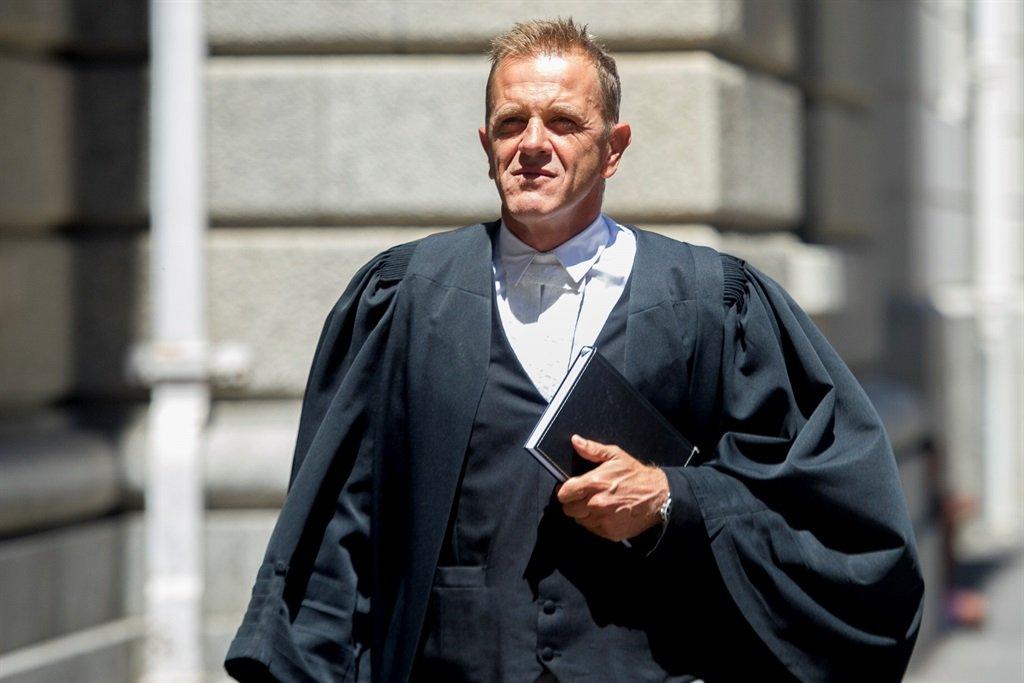Africa-Press – South-Africa. A crucial statement containing alleged admissions by one of the three men accused of the 2018 murder of Cape Town advocate Pete Mihalik is at risk of being thrown out during the murder trial.
In the Western Cape High Court trial, Sizwe Biyela, Nkosinathi Khumalo and Vuyile Maliti, pleaded not guilty to charges of murder, attempted murder, and illegal possession of a firearm and ammunition.
A torture claim has raised questions over the credibility of the statement that Anti-Gang Unit (AGU) detective Charl Kinnear took from Khumalo. Kinnear, who was later murdered, was a veteran of organised crime and gangs. So too was the investigating officer in Mihalik’s murder case.
How safe is your neighbourhood? Find out by using
News24’s CrimeCheck
It’s Khumalo’s case that he didn’t say any of the things contained in the statement and that he was tortured so badly that he just signed whatever was put in front of him. He alleges that he didn’t even read it, and that it wasn’t read to him.
However, with Kinnear dead and unable to defend himself after his assassination almost two years ago, it was left to a colleague, AGU Sergeant Simon Hlatshaneni, to say whether procedures were followed.
Hlatshaneni testified that he was in the room as an isiZulu interpreter between Khumalo and Kinnear. He did he not see any torture or assault, and Khumalo did not raise that he had been tortured either.
He said the interview was held at the Cape Town Central police station, and not in the house where Khumalo claimed police officers had dunked in bathwater.
Khumalo’s lawyer, Pieter Nel, raised numerous discrepancies in the procedures that were supposed to have been followed.
He said Khumalo had not initialled important built-in checks on the human rights of a suspect in custody, according to the copy of the documents he had been given.
‘Our lives could be in danger’: Inside Babita Deokaran’s R850m ‘fraud’ probe
For example, he did not initial a section asking whether he had been told he could have a lawyer present, and did not sign a section asking whether the statement he was going to sign had been read to him.
He only signed the end of the document and gave his thumbprint.
Nel also pointed out that the three defence lawyers did not have the same version of the checklist document that the State used, which was had handed up to Judge Constance Nziweni.
The time span of the interview with Khumalo was also incorrect, Nel said, pointing out that it was recorded as having lasted just five minutes. Hlatshaneni said on Monday that it lasted at least an hour or more.
Hlatshaneni said it might have been a “human error” on Kinnear’s part.
He said it would not have been necessary for Hlatshaneni to initial absolutely everything that the police initialled, because he signed the end of the document.
Nel charged that Hlatshaneni wasn’t even present at the interview Kinnear had with the accused, and that the interviews had actually taken place two days earlier – the day Khumalo was allegedly tortured.
Hlatshaneni said he could not comment on any other interviews with Khumalo, but added that he was definitely present for the 1 November interview by Kinnear.
Alex FM presenter shot dead during robbery
He said he also read and translated the statement to Khumalo because it was written in English, and the reason the accused did not check the box to say he had read it, was because the accused couldn’t read English.
He insisted that he did not notice any injuries on Khumalo to substantiate an allegation of torture, apart from grazes on his feet.
Hlatshaneni’s language skills were also questioned.
He told the court earlier in the week that he spoke languages spoken in the Matatiele area, where he grew up – isiZulu, IsiXhosa, isiHlubi and seSotho. He said he considered himself fluent in isiZulu – the language used in the interview.
Khumalo’s lawyer asked him to translate some sections of the admissions statement as an impromptu test.
He put it to the witness that he had actually never seen Hlatshaneni before Monday. “That is not true,” Hlatshaneni responded.
The statement in question noted that Khumalo said he came to Cape Town to drive a taxi but found himself in the proximity of men planning to kill a white man, which scared him.
The trial continues.
For More News And Analysis About South-Africa Follow Africa-Press






